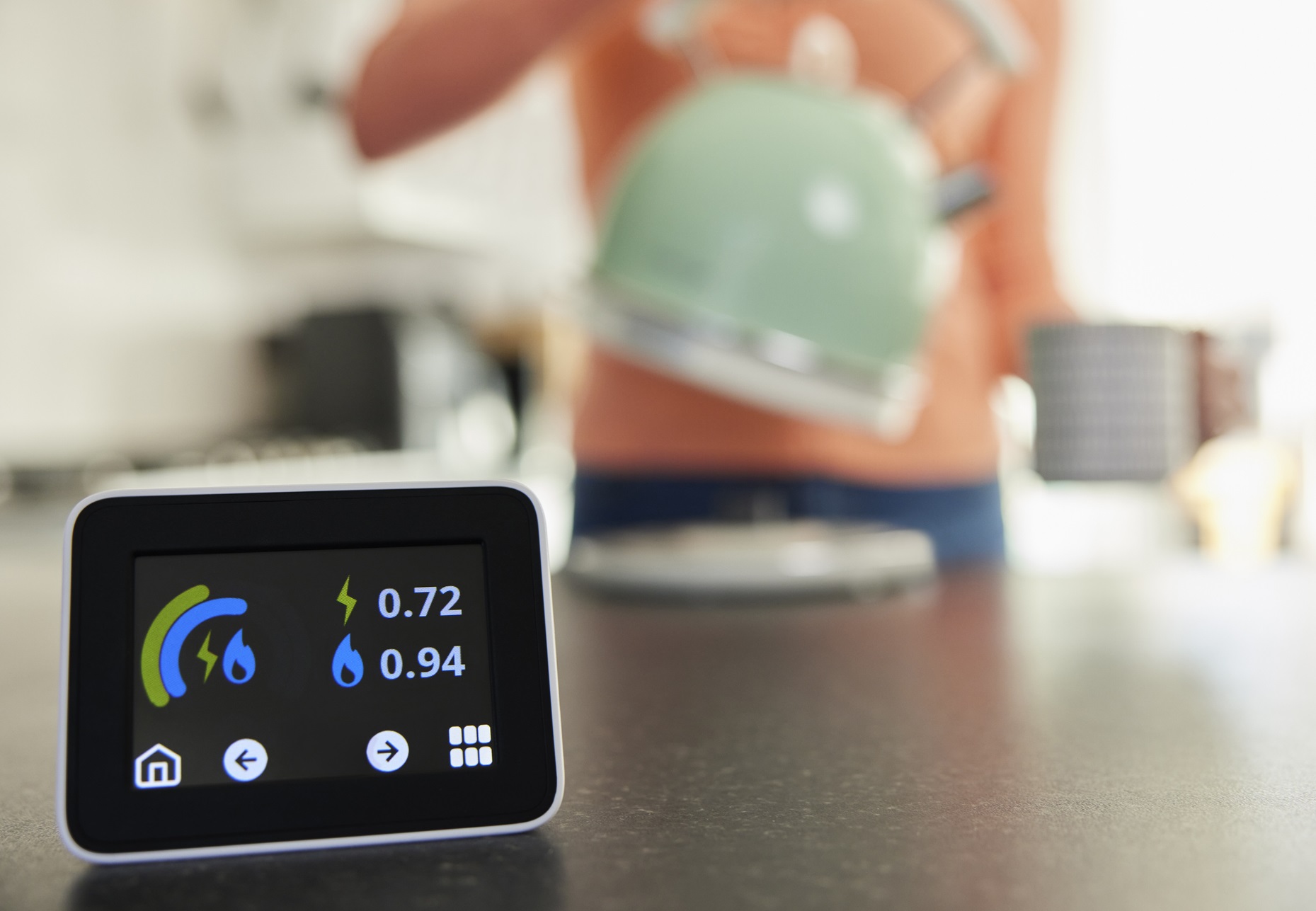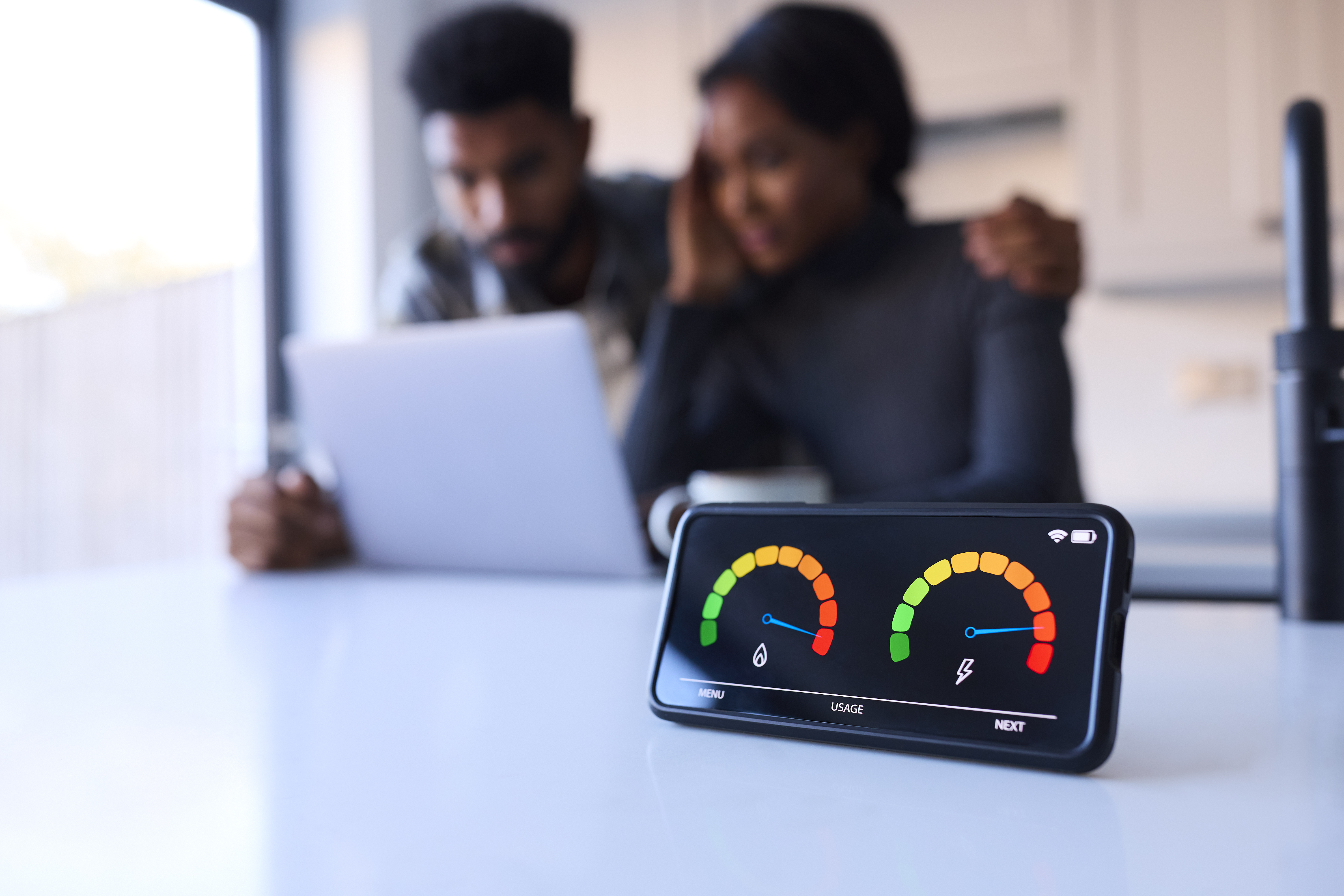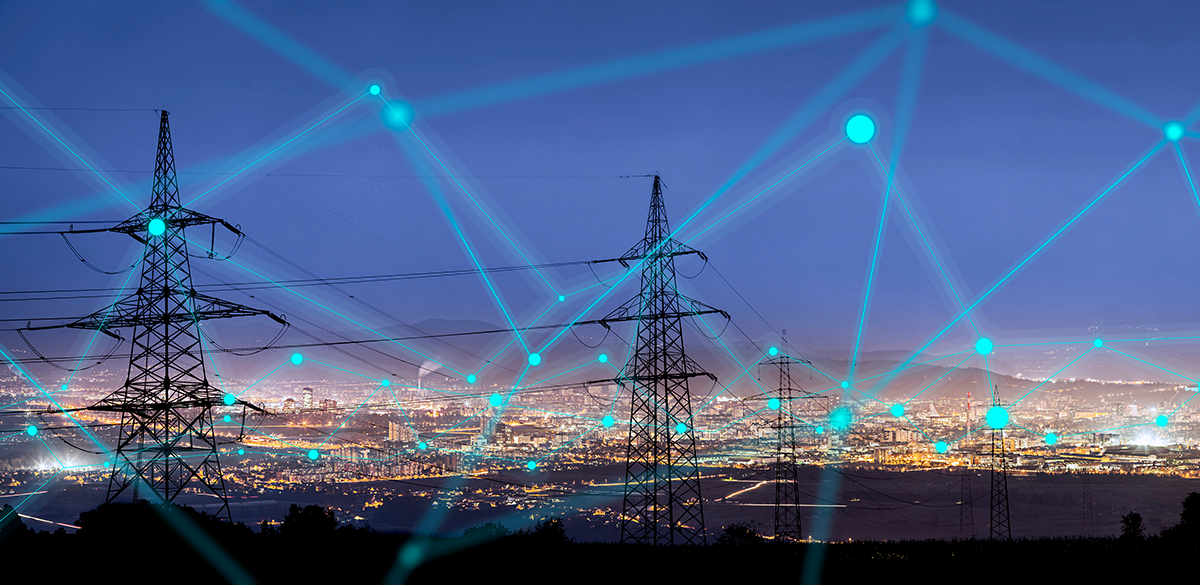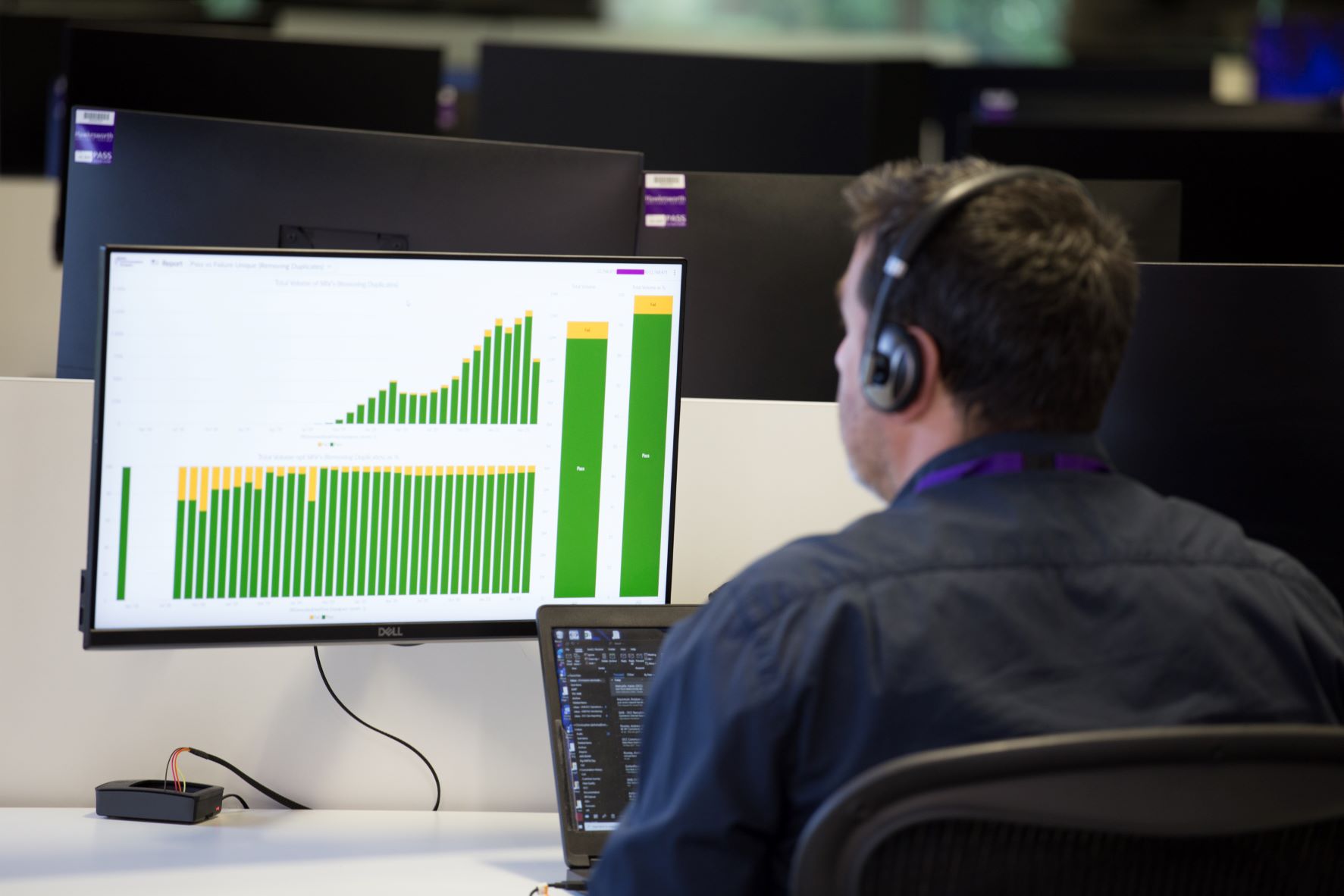Smart meters and the environment
The data provided by your smart meter puts you in control of your energy usage, meaning you can take energy-saving steps to reduce your CO2 emissions and play your part in Britain’s journey to Net Zero. Together, Britain’s smart meter users and the DCC network save over 1.1 million tonnes of CO2 emissions each year.
Understanding your energy use
Smart meters are accompanied by an in-home display, a portable touchscreen device that shows near real-time energy usage data. By using the in-home display and the data it shows, we can all understand how much energy we are consuming and what devices in our homes are using the most energy.
By using a smart meter to understand your energy use, you can begin to reduce it – saving you money, and saving energy supplied by the grid, which ultimately reduces your carbon footprint.


The DCC network, enabled by smart meter data
Smart meters are a major component of the wider energy infrastructure. They are linked by the DCC network, which also has a significant role to play in helping Britain meet its decarbonisation aims.
Informed by smart metering data, the network enables Britain to make the fullest use of renewable energy. To make our homes more efficient we’ll all need to use more devices like solar panels, heat pumps, electric vehicles, and home energy storage. But to work really well, these devices depend on the smart metering data that is transmitted over the DCC network.

Smarter energy usage
Efficient energy use doesn’t only happen in the home, using smart metering data and the DCC network, the whole energy grid can be used more effectively.
Did you know that the Demand Flexibility Service – the government-backed initiative to financially reward users for cutting their energy usage at peak times – is enabled by the smart meter network?
Schemes like the DFS help reduce the overall demand on the grid and ease the pressure on energy generation capacity, making the whole system less environmentally impactful.
About the DCC
Further reading



